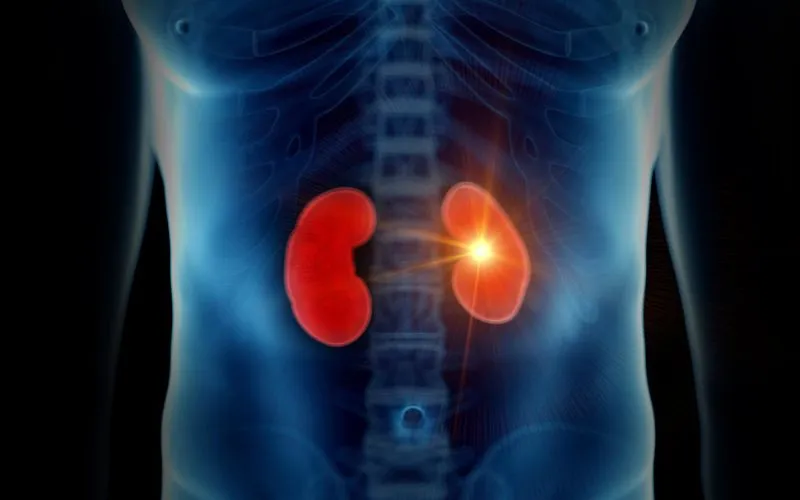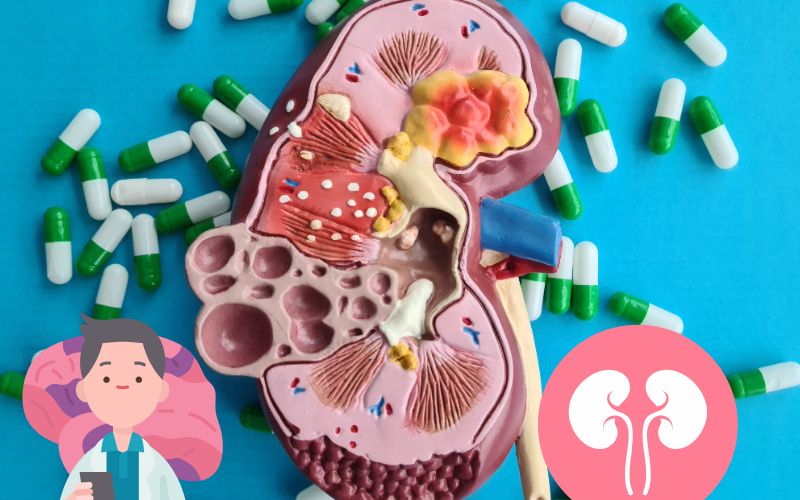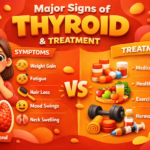The human kidney consists of functional tissue called renal parenchyma, which filters blood and produces urine. Renal parenchymal disease is a medical condition that damages the tissues, primarily due to chronic conditions like hypertension, diabetes, or glomerulonephritis.
Renal Parenchyma consists of two kinds of tissues which are:
- Renal Cortex: Renal Cortex is the outer part of the kidneys where the nephrons are connected. The nephrons have two parts, namely, glomeruli, which are responsible for the first stage of blood filtration, and the other part is renal tubules, which are responsible for the reabsorption of water, minerals and nutrients.
- Renal Medulla: This is the inner layer of the kidneys, where the urine is collected and transported to the renal pelvis.
Types of Renal Parenchymal disease
The different types of Renal Parenchymal diseases are as follows:
- Chronic Renal Parenchymal Disease (CRPD)
Chronic Renal Parenchymal Disease is long-term and gradual damage to the renal parenchyma, leading to permanent kidney function damage. The patient experiences symptoms like extreme fatigue, high blood pressure and reduced urine output.
- Bilateral Renal Parenchymal Disease
Bilateral Renal Parenchymal Disease (BRPD) is a significant damage to both the kidneys, which damages the function. The leading cause of this is chronic conditions like hypertension and diabetes and autoimmune diseases like lupus and nephritis.
- Glomerular Renal Parenchymal Disease
This affects the glomeruli in the renal cortex, which is responsible for filtration. It is caused mainly by immune system diseases and inflammation. Symptoms include traces of protein and blood in urine, inflammation, etc.
- Tubulointerstitial Renal Parenchymal
This condition damages the renal tubules and the surrounding interstitial tissues, damaging the kidney’s function to filter waste and concentrate urine. AIDs, autoimmune diseases, drug toxicity, etc can cause it.
Causes of Renal Parenchymal Disease
The following causes of renal Parenchymal are as follows:
- Autoimmune diseases like lupus nephritis and external environmental factors like exposure to toxic chemicals damage kidney function, which causes scarring and progressive damage to the tissues.
- Chronic diseases like hypertension and diabetes are the primary cause of renal Parenchymal disease, as it damages the kidney vessels, which slows down its filtration capacity.
- Genetic disorders like Polycystic Kidney Disease (PKD) cause the formation of cysts in the kidneys, which leads to swelling and scarring of the kidney tissues.
- If you have kidney stones, tumours, or an inadequate blood supply to your kidneys, it can damage the tissues, and obstructions can cause back pressure in the kidneys.
- Acute Kidney Injury (AKI) can cause sudden damage to the renal parenchyma, which reduces kidney functions over time. The leading causes of AKI are dehydration, infection, trauma, etc.
- Excessive consumption of some medications like Angiotensin converting enzymes (ACE) and Non-steroidal anti-inflammatory drugs (NSAIDs) causes dysfunction of renal parenchyma.
Symptoms of Renal Parenchymal Disease
You should visit a kidney specialist in Delhi if you are experiencing the following symptoms:
- Swelling or Edema
Edema occurs when the kidneys cannot filter out excess fluid from the body. Fluid retention leads to swelling, especially in the legs, ankles, feet, and face.
- Low or decreased urine output
If you are suffering from oliguria, which is low urine output or anuria, the complete absence of urine production. This leads to slow and progressive damage of the kidney tissues.
- Hypertension
Initial damage to the kidney can cause regulations in the blood pressure, which results in sustained high blood pressure.
- Nausea and Vomiting
As the kidney loses its ability to remove toxins and filter blood, there is a buildup of toxins in the blood that leads to nausea, vomiting and loss of appetite.
- Fatigue and Weakness
Chronic damage to kidney functions causes fatigue and weakness as the kidney can not remove waste products from the blood.
- Abnormalities in Urine
If you experience foamy urine due to excess protein or the presence of blood in urine due to swelling of the kidney.

Stages of Renal Parenchymal, Is Renal Parenchymal Disease Dangerous?
Yes, renal Parenchymal is dangerous if it reaches the severe stages i.e. grade 3, which can cause permanent kidney damage.
The severity of the renal Parenchymal disease depends on the stages which are follows:
- Mild Stage
Renal Parenchymal disease grade 1 is the initial stage where you experience mild enlargement of the kidneys and slight inflammation.
At this stage, you might not experience any symptoms. However, you will notice a slight increase in your blood pressure or urine colour.
- Moderate Stage
Renal Parenchymal disease grade 2 is the stage in which the nephrologist in Delhi will notice significant damage to the renal parenchyma tissue which involves edema, fatigue, and low appetite.
- Severe Stage
Renal Parenchymal disease grade 3 leads to excessive damage to the kidney tissues, causing scarring and fibrosis. It is identified by severe symptoms like chronic hypertension, shortness of breath, nausea, vomiting, and pain in the lower back. This stage can cause life-threatening situations, like permanent damage to the kidney.
Treatment of Renal Parenchymal Disease in Delhi
The treatment renal Parenchymal disease depend on the grade or stage of the disease and the underlying cause.
Treatment for Early Stage ( Grade 1 and Grade2)
- Manage the blood pressure levels by taking antihypertensive medications like ACE inhibitors or ARBs.
- Using diuretics for fluid retention and reducing inflammation.
- Eating a balanced diet with low protein and salt reduces excessive strain on the kidneys.
- Maintaining a healthy weight and engaging in regular physical activities.
Treatment for Severe Stage (Grade3)
- During severe damage, dialysis is required to filter waste products and remove the toxins from the blood.
- In case of permanent damage of the kidney tissues, kidney transplant is the solution.
When to see a doctor
You should search “nephrologist near me” and book an appointment if you are experiencing complications like:
- High levels of phosphate and potassium in your blood.
- Low count of red blood cells
- The buildup of toxins and acids in your body fluids.
- Weak bones and buildup of uric acids in the joints, resulting in gout.
- Extreme fatigue and weakened immune system.
Kidney dysfunction is an overwhelming situation which is caused by various underlying factors and causes that deteriorate kidney health and lead to poor quality of life. Early intervention and consultation with specialists help to reduce the risk factors.
The DoctorsHub is known for its accurate diagnosis and tailored treatments, depending on the stage and level of severity. We have one of the most experienced and best kidney doctors in Dwarka. Book your appointment today and take the first step towards a healthy and happy life!













